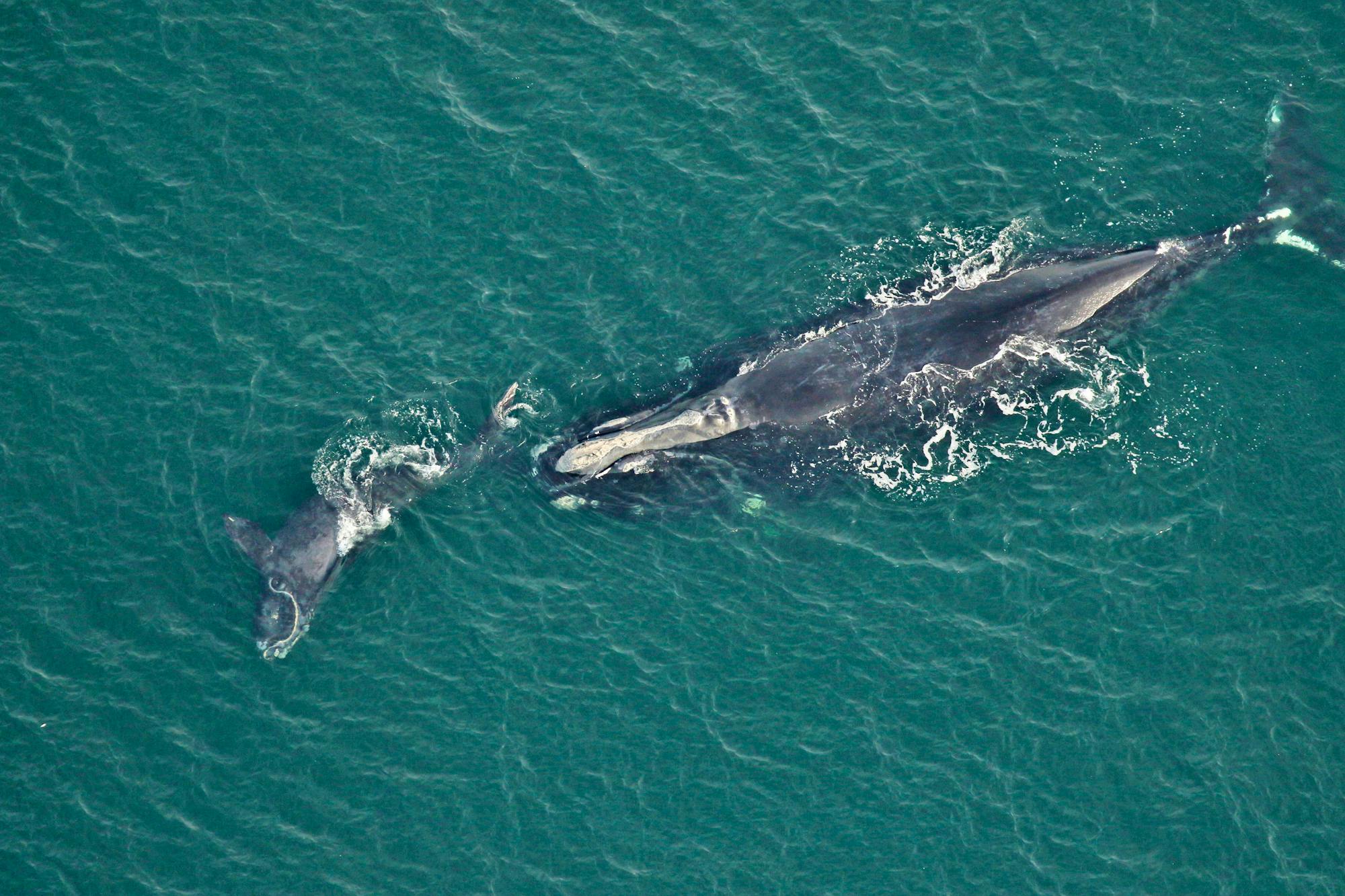I just finished reading a novel set in the future where all animals have gone extinct due to human carelessness, neglect and inaction. That world was grim and gray — devoid of the vibrancy of life as we know it today. And yet — today — the plight of the North Atlantic right whale is a forewarning of this all-too-possible future world.
North Atlantic right whales are giants of the ocean, migrating each year between their northern feeding grounds in coastal Atlantic Canada and New England to their calving grounds in the warm waters off South Carolina, Georgia and Florida, and back. These journeys are fraught with danger as they navigate waters where they encounter vessel traffic, millions of fishing ropes and other hazards associated with human activity. Once numbering in the tens of thousands, these whales have become critically endangered due to human impacts. Today there are an estimated 360 North Atlantic right whales remaining.
Of those 360 whales, only 70 are reproductive females and they only calve, at best, once every three to four years. The more likely scenario, because of human stressors, is that they calve every six to 10 years. For the species to recover to sustainable numbers, it would take 50 new calves a year for as many years. This season, only 14 mother-calf pairs have been spotted off the eastern seaboard, and three of them have already been determined seriously (mortally) injured or missing and presumed dead. Unfortunately, North Atlantic right whale calves have a one in 14 chance of being struck by a vessel and only a 50% chance of reaching adulthood.
These reality-checking facts were driven home in January, when a calf was spotted off the coast of South Carolina with mortal wounds across its head and lip. The cause? A vessel strike.
Vessel collisions are often lethal, but they’re also preventable. A 2008 rule to protect whales from vessel strikes requires vessels 65 feet and longer to reduce speeds to 10 knots or less during periods, or seasons, when right whales are likely present. In 2020, Defenders of Wildlife and its conservation allies petitioned the Biden administration to expand the vessel speed rule to vessels 35 feet and longer and provide other protections against vessel strikes. Although the administration published a proposed rule in August 2022 that would implement many of these protections, it is stuck in administrative limbo and has not been finalized. What’s more, even without a final rule, anti-wildlife members of Congress are preemptively trying to quash the rule on behalf of special interests!
But that doesn’t mean we’re giving up. Far from it. Here’s how you can join us.
-
Submit a letter to your Members of Congress, using this form, to urge them support a strong vessel speed rule to protect North Atlantic right whales and oppose political interference. Want to do more? Call your Senators and Representatives using the U.S. Capitol switchboard at 202-225-3121 and voice your opinion.
-
Tell the Biden administration to finalize life-saving protections as soon as possible. Add your name to our letter urging immediate action to save North Atlantic right whales from being struck and killed by vessels.
-
Slow down. Next time you’re on the water, ask the boat captain if North Atlantic right whales are expected to be in the area. If so, ask if the captain will slow the boat’s speed to prevent vessel collisions.
-
Become a Defenders North Atlantic right whale ambassador. We offer exclusive trainings, issue briefings and social media engagement to deepen your own advocacy work.
-
Be an activist for all wildlife. Check out our activist hub online and pick from the tools we provide to participate in spreading awareness and galvanizing action.
The richness of our natural world, complete with giants like the North Atlantic right whale, is nothing short of awe-inspiring but it’s also incredibly fragile. Fortunately, we can act to save the North Atlantic right whale and ensure a future teeming with species. All you need to do is make your voice heard and help us slow down vessel traffic when whales are present. Together, we can create a world in which mother whales and their calves have a safe environment to grow and thrive.







